Normal Two Letter Phonics Worksheets for Ages 3-8
18 filtered results
-
From - To
Discover our engaging Two Letter Phonics Worksheets designed for children ages 3-8! These worksheets offer a fun and interactive way for young learners to master essential phonics skills. Each worksheet focuses on blending two-letter sounds, promoting early reading proficiency and phonemic awareness. Our colorful, age-appropriate exercises include tracing, matching, and completing words, keeping kids motivated and excited about learning. Ideal for both classroom use and at-home practice, these resources support varied learning styles and help reinforce foundational literacy skills. Start your child’s reading journey today with our easy-to-use phonics worksheets that make learning enjoyable and effective!
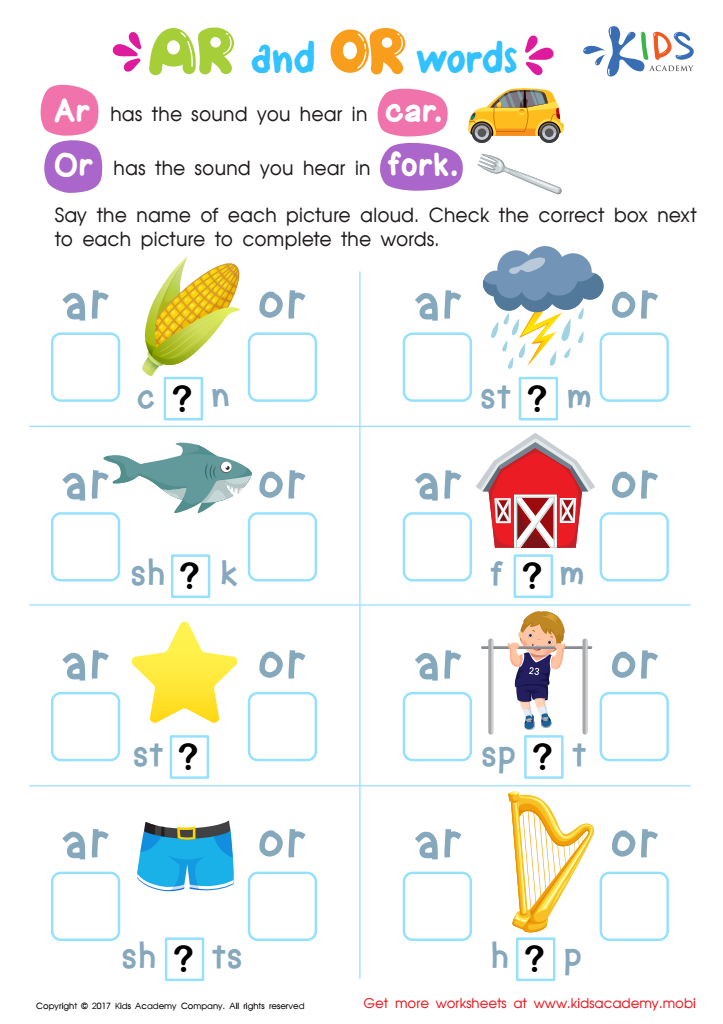

Ar and Or Words Phonics Worksheet
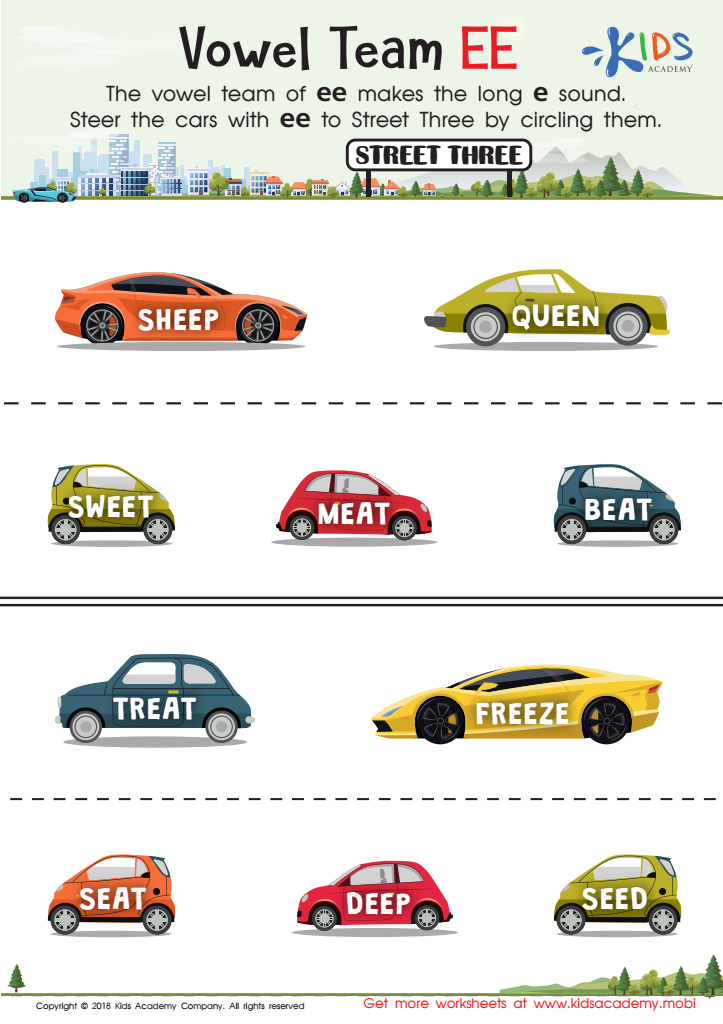

Vowel team ee Worksheet
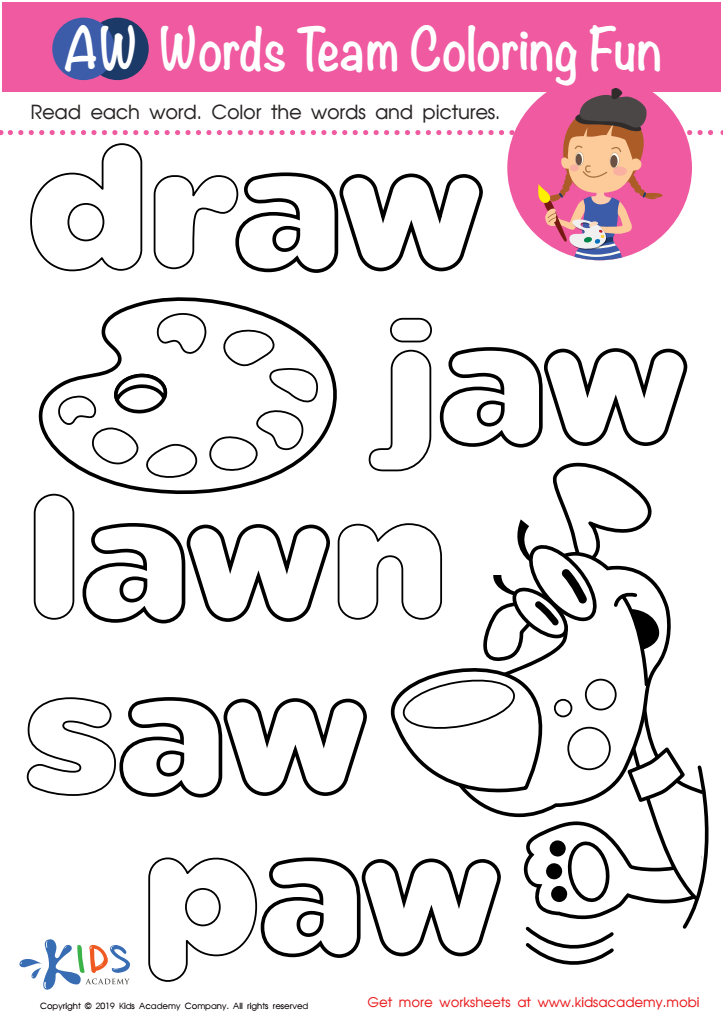

AW Words Team Coloring Fun Worksheet
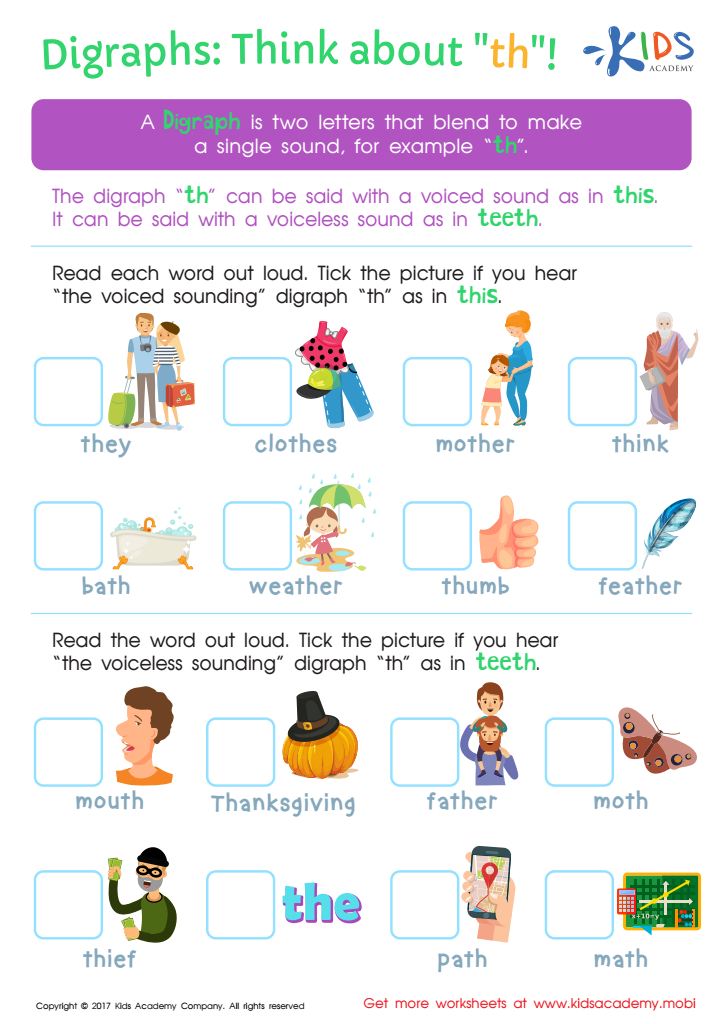

Digraphs: Think About "th" Worksheet
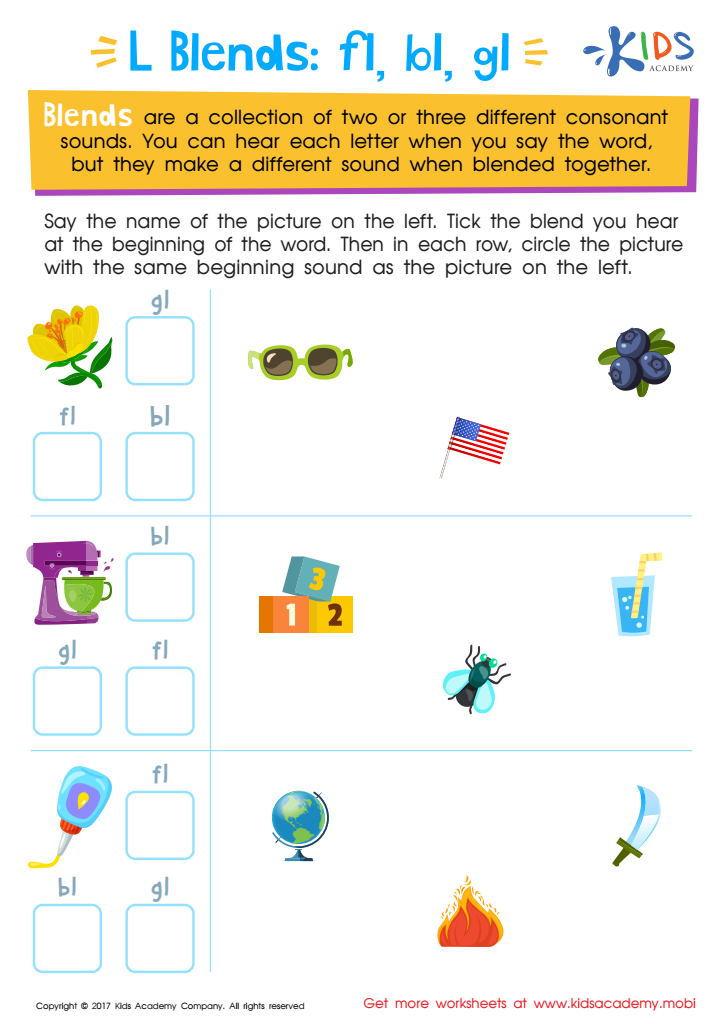

Blending Consonants: "Fl", "Bl" and "Gl" Printable
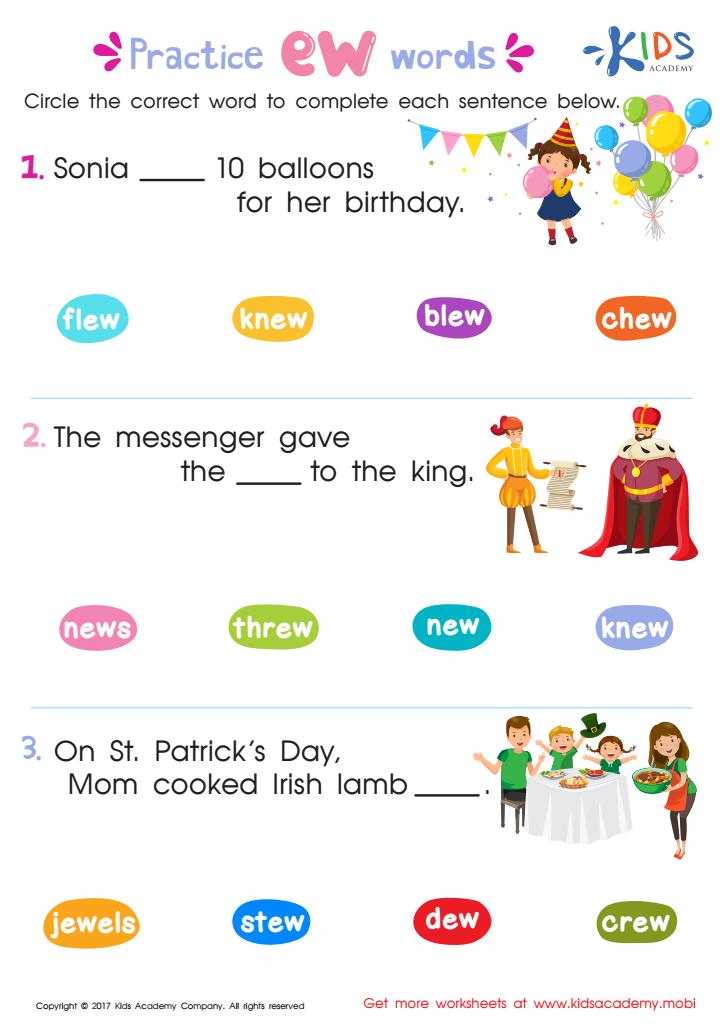

EW Words Worksheet
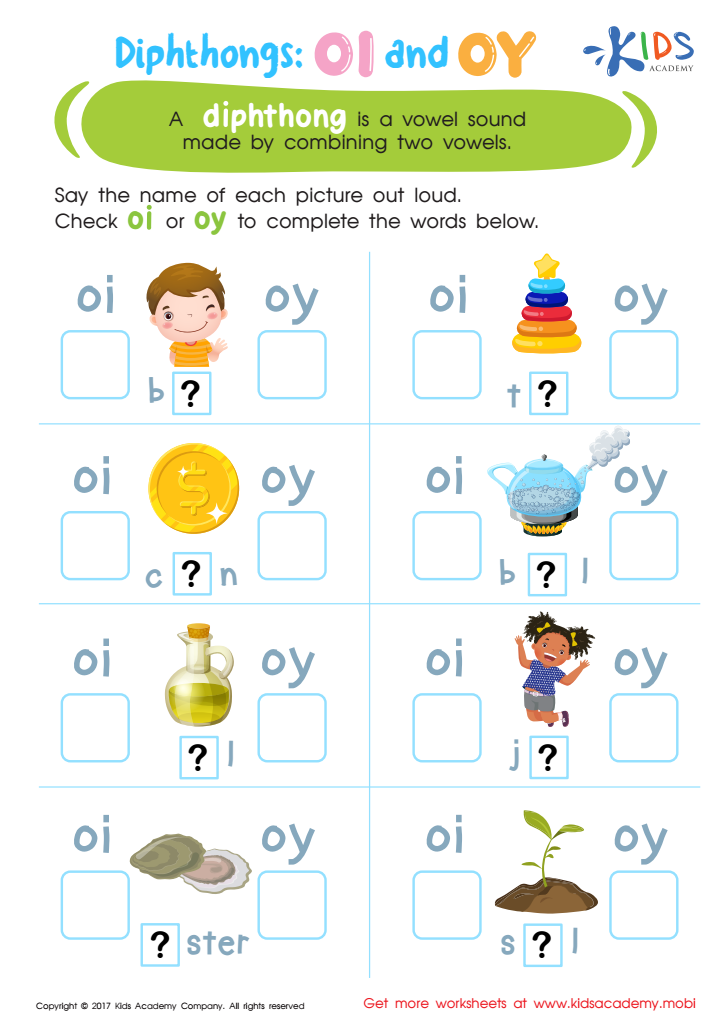

Vowel Diphthongs OI OY Worksheet
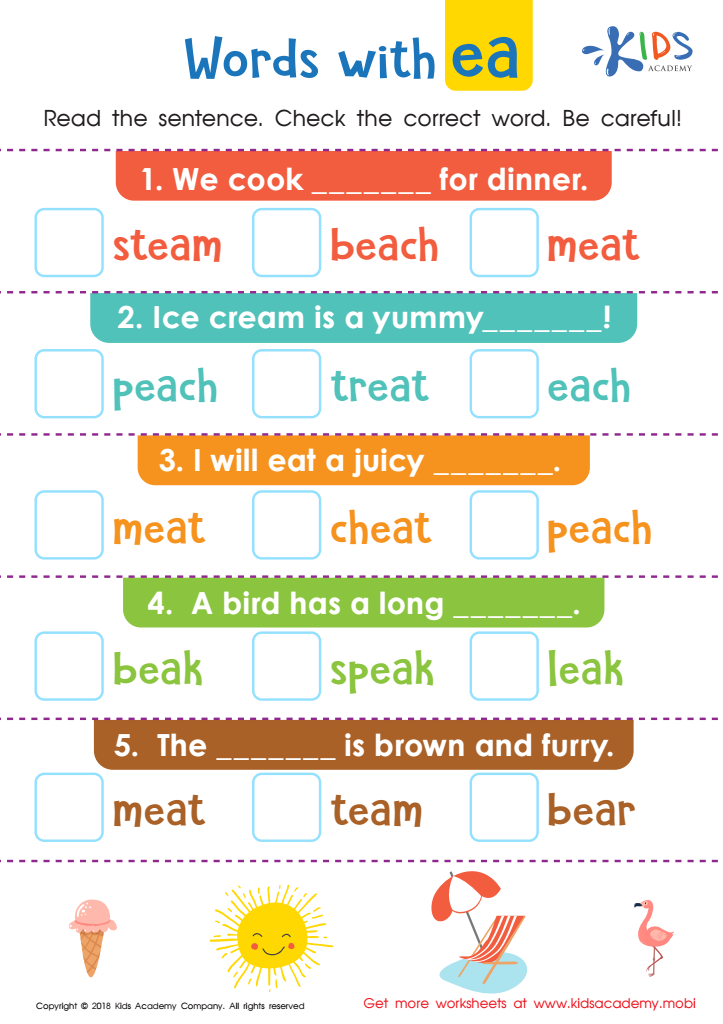

Words with ea Worksheet
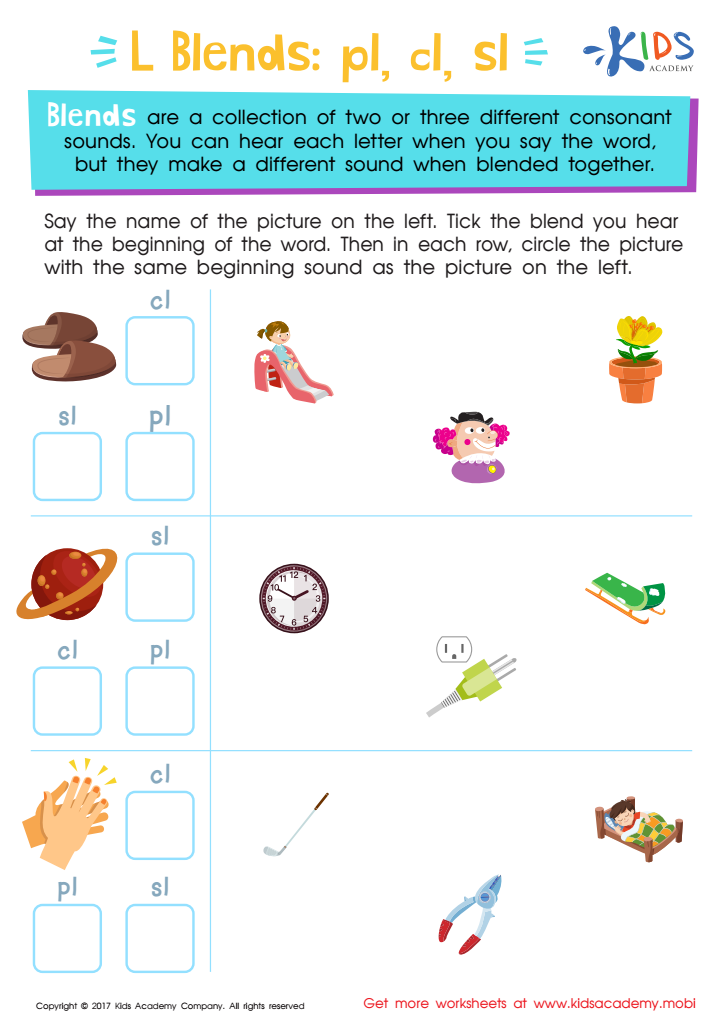

L Blends: "Pl", "Cl" and "Sl" Printable
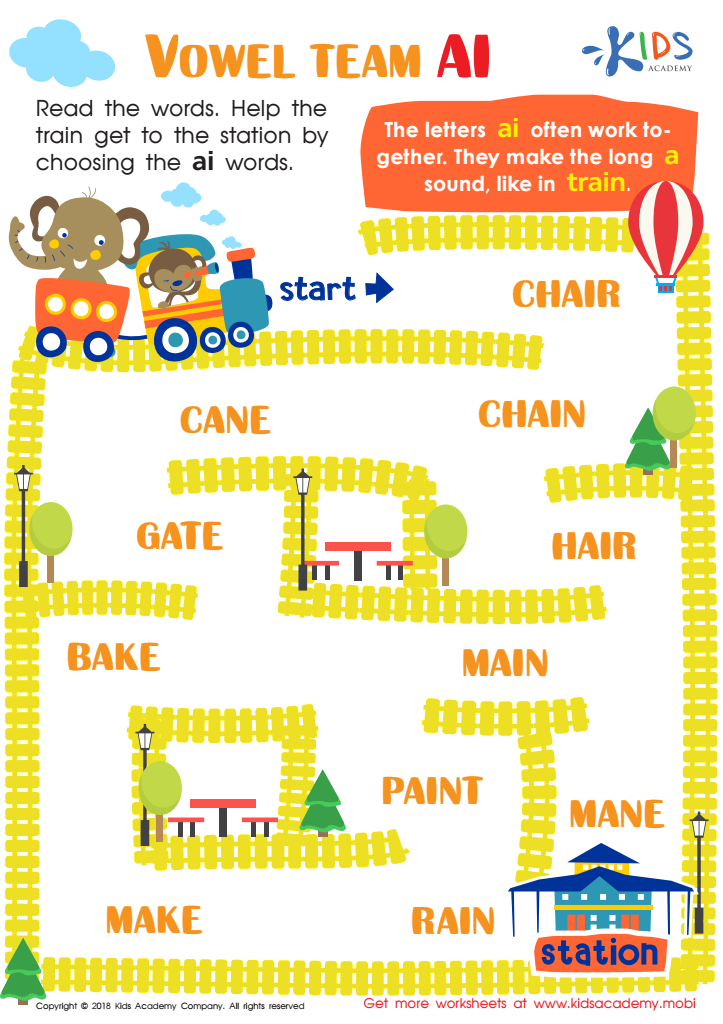

Vowel team ai Worksheet
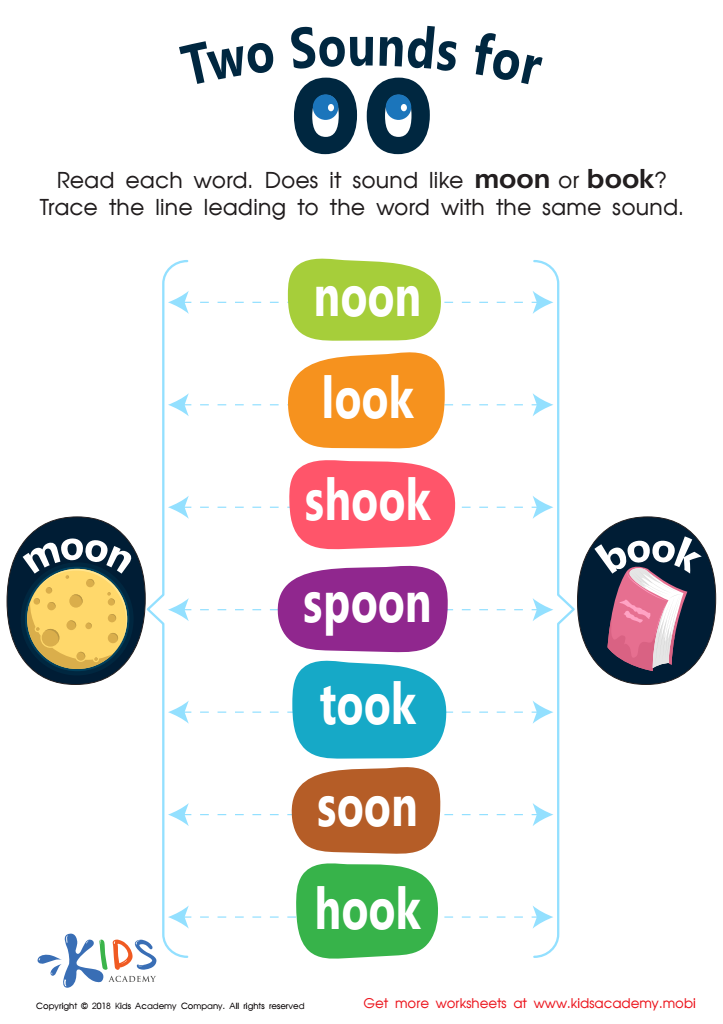

Two Sounds for OO Worksheet
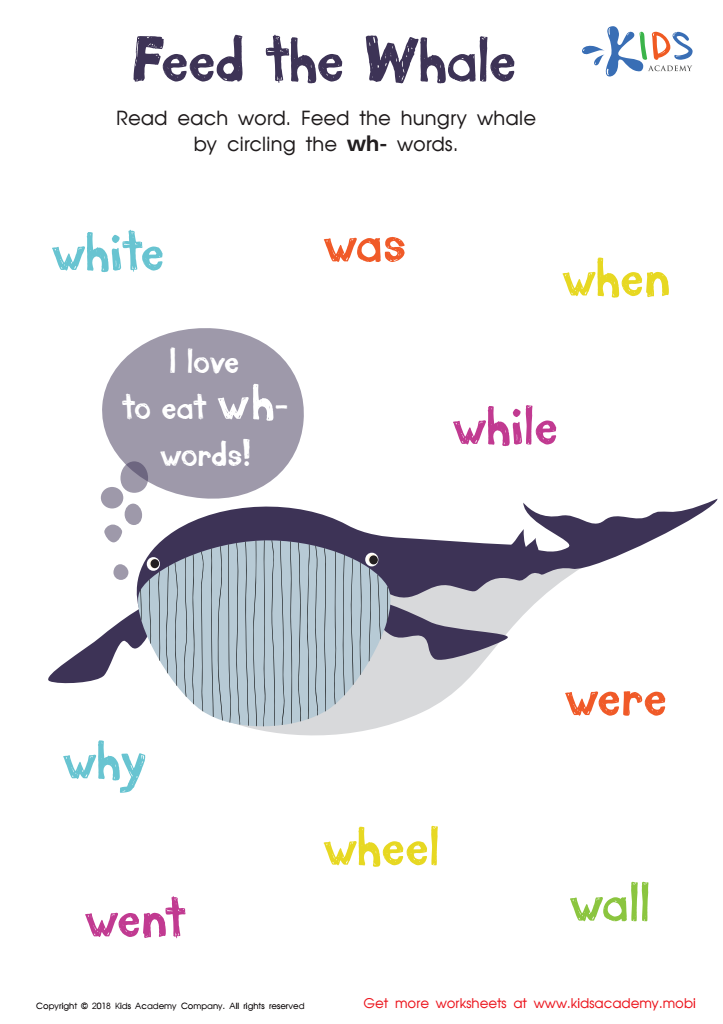

Feed the Whale Worksheet
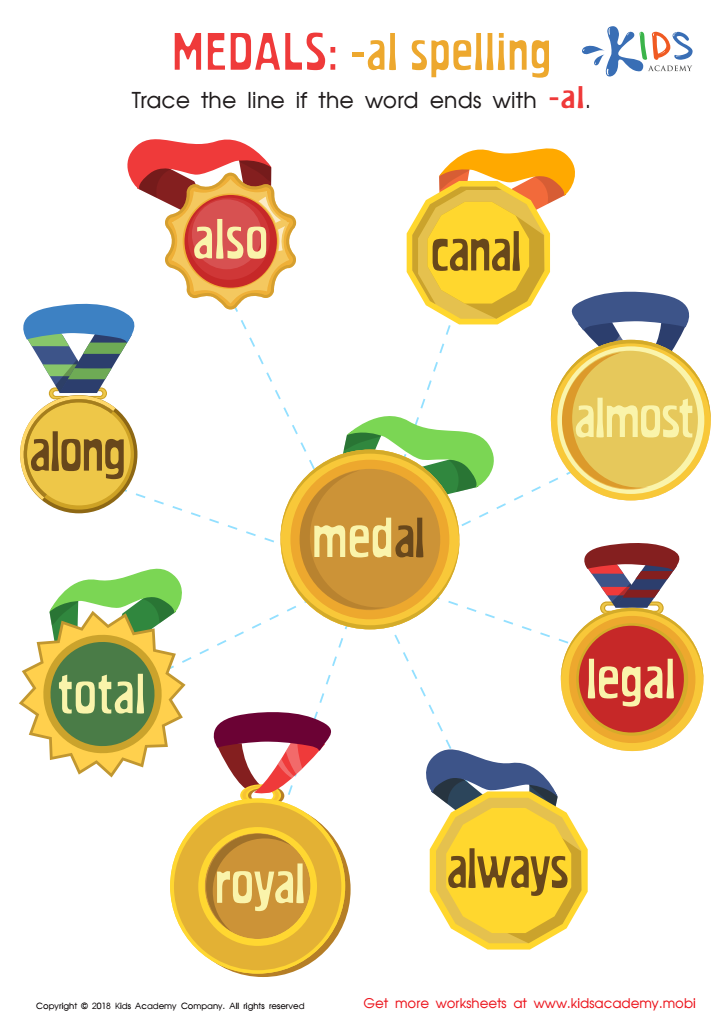

Medals: Al Spelling Worksheet
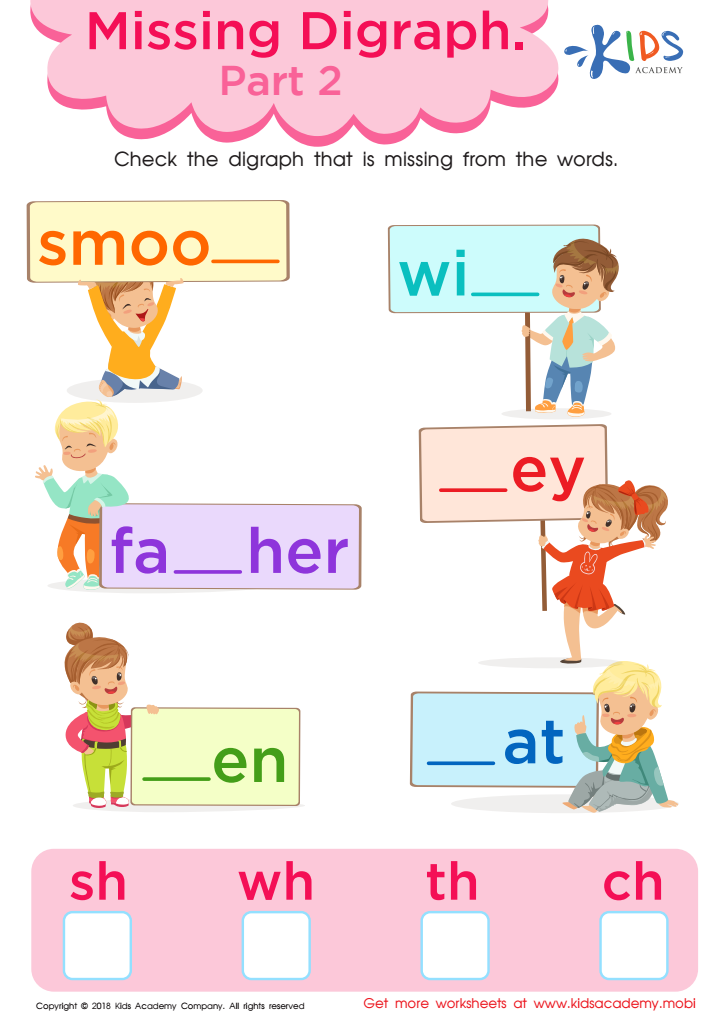

Missing Digraph: Part 2 Worksheet
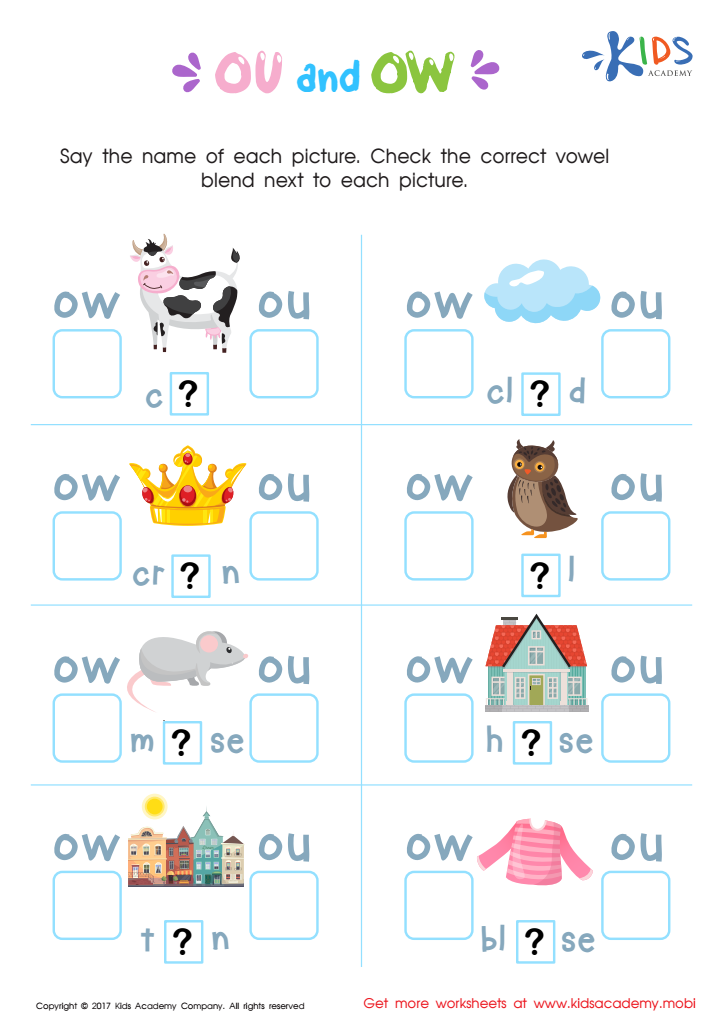

OU and OW Words Worksheet
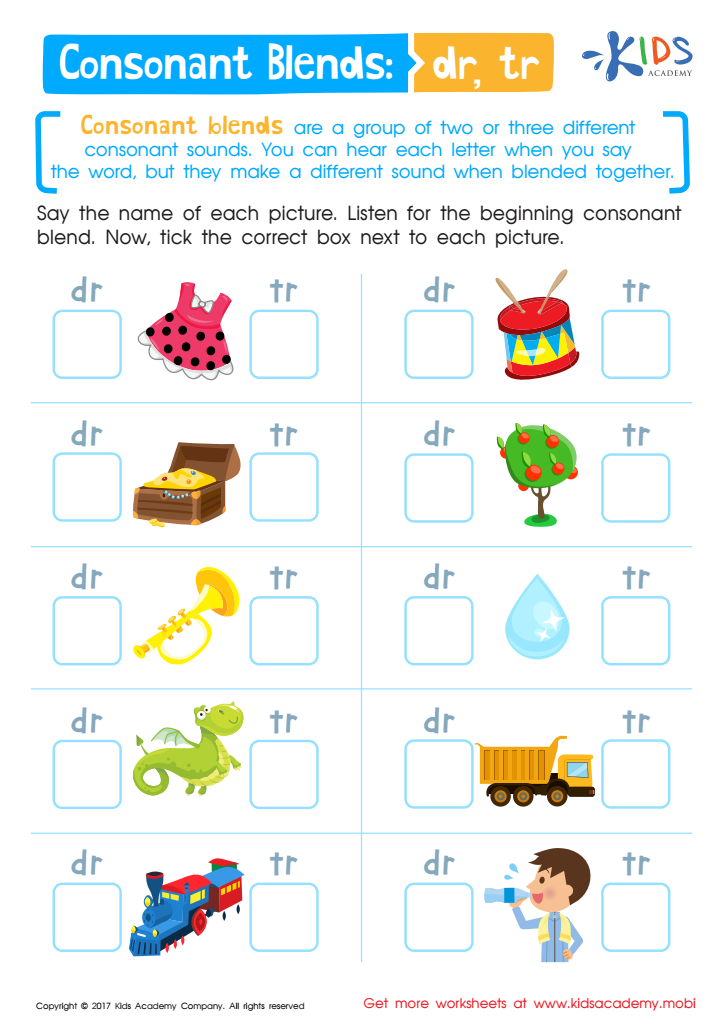

Consonant Blends: "Dr" and "Tr" Printable
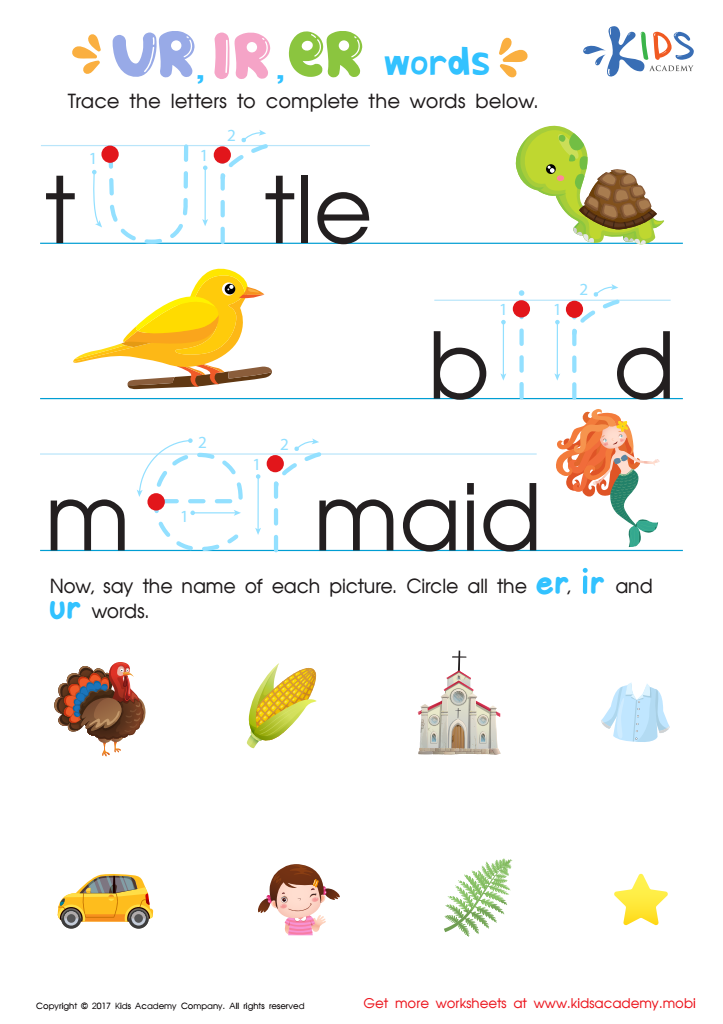

IR UR ER Words Worksheet
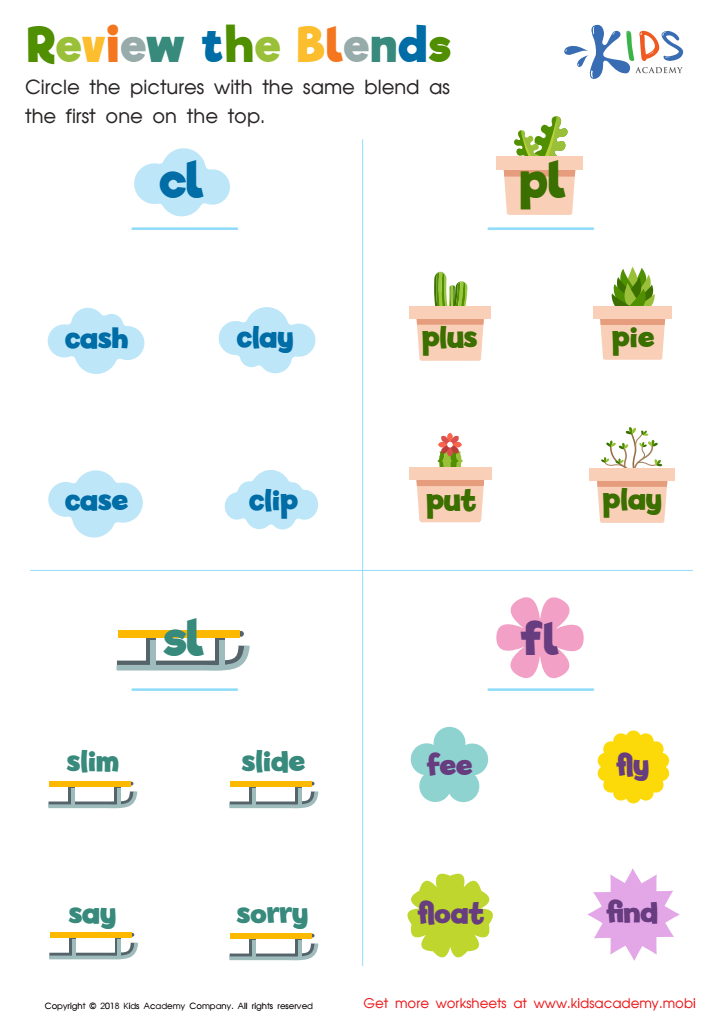

Review the Blends Worksheet
Normal Two Letter Phonics play a crucial role in early literacy development for children aged 3-8. Understanding phonics helps children decode words, building a strong foundation for reading and writing. Two-letter combinations, like "at," "is," or "an," present simple sounds and introduce children to the concept of blending sounds to create words. This empowers young learners, fostering their confidence and encouraging independence in reading.
For parents and teachers, mastering these phonetic pairings supports the growth of essential skills. It aids in vocabulary expansion and comprehension, as children move from reading simple words to constructing sentences. Additionally, incorporating two-letter phonics into daily activities entertains children while reinforcing learning. From storytelling at home to interactive games in the classroom, this approach keeps young learners engaged.
Moreover, phonics instruction enhances listening and speaking skills, allowing children to communicate more effectively. As they grasp these foundational elements, they are better equipped to tackle more complex reading materials as they progress. Supporting Normal Two Letter Phonics not only nurtures cognitive development but also establishes a lifelong love for reading, which is fundamental for academic success and overall growth. In a rapidly digital world, fostering strong reading skills in young learners ensures they are prepared for future challenges.
 Assign to My Students
Assign to My Students
















